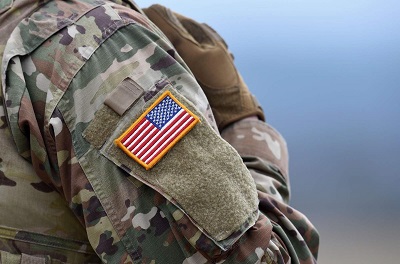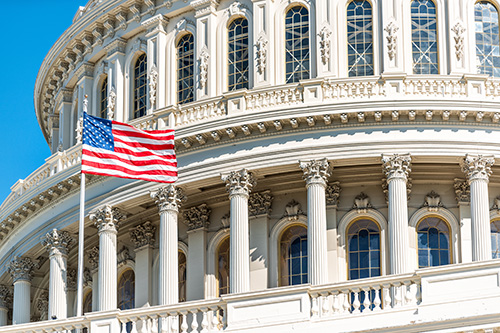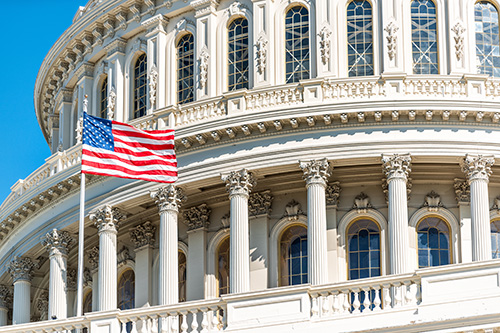Embracing Enemies, Abandoning Allies
The Administration is forsaking its friends in the Middle East in favor of appeasing Iran
 With civil wars in Syria, Yemen, Libya and Iraq, and with instability and terrorism stretching from Turkey to Egypt, now is not the time for the United States to further roil the Middle East by appeasing our adversaries and abandoning our allies.
With civil wars in Syria, Yemen, Libya and Iraq, and with instability and terrorism stretching from Turkey to Egypt, now is not the time for the United States to further roil the Middle East by appeasing our adversaries and abandoning our allies.
But that's just what the Obama administration has been doing in the dispute between Iran and Saudi Arabia. In spite of Iran's well-earned designation as the largest state sponsor of terrorism, and its stoking of sectarian divisions across the region, the White House is tilting towards Tehran in another of its infamous "resets."
Tensions flared recently between these two regional rivals when Iranian mobs trashed and burned the Saudi Embassy in Tehran. Purportedly, the rampage was responding to the Saudi's recent execution of 47 convicted terrorists, including a Shiite cleric seeking to overthrow the Saudi Arabian government and other terrorists who attacked the U.S. consulate in Jeddah in 2004, which killed nine people. But the riot recalled another supposedly spontaneous incident: the 1979 invasion of the U.S. Embassy in Tehran that resulted in more than 60 Americans being held hostage.
Answering the attack on its embassy, Saudi Arabia severed relations with Iran. So did Bahrain and Sudan. Meanwhile, the United Arab Emirates downgraded its diplomatic ties with Tehran.
And how did the administration respond? Not by standing with our friends but by cozying up to our foe.
Seeking to protect the misguided nuclear agreement with Iran that will lift economic sanctions on them within days, the administration slapped both rivals' wrists while giving the Saudis the cold shoulder. White House spokesman Josh Earnest equivocated, saying "I guess the point is that there's plenty of blame to go around."
Just two days after the United States officially lifted sanctions on Iran, sending billions of dollars to a nation that has promised to wipe Israel off the map, the U.S. ambassador to Israel sharply criticized Israel's rule of law. Under this administration, it somehow makes sense to sign a deal with one of the worst human rights abusers in the world in Iran and then days later pick at our ally Israel as it struggles to deal with a months-long wave of violence where terrorists stab innocent civilians with knives.
The administration ignores three fundamental facts: First, Iran is a bad actor. Second, the Saudis and Israelis are essential to American interests. And third, American passivity in the Middle East is forcing the Saudis and Israelis to go it alone.
From the hostage-taking in 1979, to the bombing of the Kobar Towers in 1996, to the recent seizure and detainment of 10 American sailors, Iran is antagonistic to America and engages in deliberate provocations. Tehran supports violent rebels in Yemen; supplies weapons to Hezbollah to destroy Israel and destabilize Lebanon; and provides money, weapons and other support to the brutal regime of Syrian President Bashar Assad, contributing to the killing of more than 250,000 people and the exile of 4.5 million refugees.
While Iran props up Assad and aids him in killing innocent civilians, Saudi Arabia has participated in coalition operations against the Islamic State group in Syria and recently founded an alliance of more than 30 countries to combat al-Qaida, the Islamic State group and other terrorist groups. Israel meanwhile is working to protect itself from terrorist groups like Hezbollah, which is building up weapon stockpiles to its north, and the Islamic State group, whose leader said recently that "Palestine will be a graveyard" to the Jews.
The U.S. military knows the importance of these two allies. Our armed forces have conducted joint military exercises with both the Saudis and the Israelis, and Israel and Saudi Arabia are two of the largest customers of U.S. military equipment.
The problems confronting the Middle East are too big for the United States to solve on its own. Millions of Syrians have left their homes to find refuge somewhere it is safe. The Islamic State group continues to find safe haven in Iraq and Syria. But if we want our allies to do more – and they must if these challenges are to be overcome – we need to give them assurances, not treat them worse than we treat the largest state sponsor of terrorism. If our longtime partners feel anxious and alone, they may act in ways that further upset the fragile balance in an increasingly unstable region. America needs to return to reassuring our friends and restraining our foes. And that's just the way it is.








